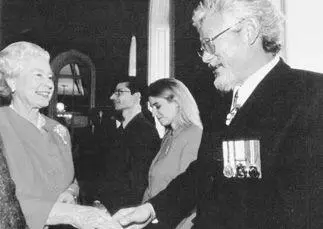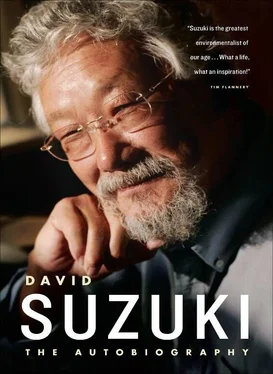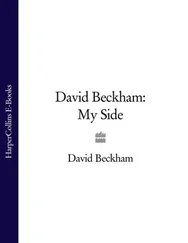Prince Charles was especially struck by my use of the metaphor of the “boiled frog syndrome.” According to psychologist Robert Ornstein, frogs that live in an aqueous environment have thermal receptors, sensory organs that detect large changes in temperature but not small, incremental shifts. According to Ornstein, if a frog is placed in a pot of hot water, it will immediately hop out. But if it is put in cold water and heat is slowly applied to the pot, the frog will eventually boil to death without ever registering the temperature change. The relevance of that frog as a metaphor to humans, who cannot sense thinning ozone, rising atmospheric temperature, background radiation, or toxic chemicals, is obvious.
Not only did His Royal Highness consider my analysis brilliant (his word, honest), he agreed with me about the gravity of the crisis, the destructive demand of conventional economics for endless growth, and the unwarranted optimism that technological innovation will get us out of any difficulty generated by our activities. He described his own experiences of the way people in developing countries are lured away from their traditional values by advertisements and our dazzling lifestyle.
Prince Charles told me that he and the BBC were discussing the possibility of his hosting a program on the environment. He was under enormous pressure to tone down his remarks, however, even though he felt there was a need for the kind of strong statements I had made in my speech. He ended by telling me that he would send copies of my speech to businesspeople and other influential folk, and he asked me to let him know if I was ever in his neck of the woods.
Now, like many people, I had read stories in the popular press portraying an eccentric king-in-waiting who was reputed to talk to plants and have weird ideas about architecture, but this was an unusually thoughtful letter. And since he had responded so generously to my ideas, of course I knew he must be brilliant. My parents-in-law are English, so I figured I would win a lot of brownie points with them when I showed them the letter. And I was right — they were most excited.
Because the letter had ended with an invitation to drop in, Tara and I decided we would take a trip to England built around a visit to Prince Charles. He had given a number to call, so the next day I called it, and I reached his personal secretary. I suggested a number of days when I could visit, and he promised he would check the prince's calendar and get back to me, which he did within a couple of days. We were scheduled for a half hour at Highgrove, the prince's summer place, which was near Tara's birthplace in Wotton-under-Edge in Gloucestershire.
Soon we had booked a plane and made our summer plans around our English visit, only to read a few weeks later that the prince had fallen off a horse while playing polo and broken his arm. I figured our visit would be off, so I called his secretary, telling him I had heard the prince was cancelling appointments. “Yes, he is,” the secretary confirmed, “but not the appointments he wants to keep, and yours is still on his calendar.”
Tara and I flew to England and after dropping our children off with relatives in Wotton-under-Edge went to Highgrove, where we were ushered into a large room whose walls were covered with pictures. I recognized the famous portrait of George iii, the mad king thought to have suffered from porphyria, a hereditary disease; under his reign, the United States had broken away. Sitting on some of the tables were numerous family photos of the prince's siblings, children, and friends, but not one of Diana. We waited for several minutes — long enough to have a good look around without being snoopy. The apparent lack of security was quite stunning, although I'm sure today things are different. When we arrived at Highgrove, I had simply called out my name at the front gate, and we were let right in, then left alone in the room.
Finally Prince Charles walked in with his arm in a sling and greeted us warmly, making a self-deprecating remark about his clumsiness while playing. He is so familiar and famous, yet so personable and relaxed. He's only a human being, but he has been bred for this kind of rarefied life and exudes that in the way he carries himself. We had been briefed about what not to do — for example, refer to the Queen as “your mother” or call him Charles. I was impressed by how trim he was — not a hint of fat around his waist, yet think of all those fancy dinners he attends.
We spoke of many things. He mentioned that the critics had blasted him for expressing his views on modern architecture, since he had no credentials. He was keenly interested in environmental issues but wanted to avoid being attacked again in the same way he was by architects, so he asked if it was all right for him to consult me if he ever needed to have some backup expertise. I readily agreed but have never heard from him again, so I hope he does have others with expertise to advise him. He told me how to address the envelope of a letter so it would get to him in person, but I have never taken advantage of that information.
Toward the end of our meeting, which lengthened into an hour, he suddenly asked Tara and me what we thought about Muslims. The question came out of left field, and both of us sputtered that we hadn't really thought about them. “I think they are a very important group that we have to reach out to,” he answered, adding that immediately after we left, he was meeting some Muslim leaders. History has revealed how prescient he was.

Queen Elizabeth visiting the CBC in Toronto
I did meet him twice more. Once, when Bob Rae was the New Democrat premier of Ontario, I was invited to a noon luncheon with the prince and a group of leaders from the ethnic community. The prince was very informal and suggested we make it a working lunch and chat while we ate. He opened the discussion by asking what we each felt were priorities for Canada. A banker originally from the Caribbean got up and talked about racism; the first day he had gone to work at the bank, a guard had mistaken him for the janitor. A Chinese Canadian recounted her experiences of discrimination during her time in Canada, and a European Jew voiced her concerns about religious problems.
As the luncheon went on, I realized I must have been invited as representing another visible minority. I finally raised my hand and said that as a Japanese Canadian, I knew about the reality of discrimination, but I felt there were other priorities for all people that were worth mentioning. “I've been involved with environmental issues for a while, but today I feel as if we're all in a giant car,” I said, making up my metaphor on the spot, “heading at a brick wall at a hundred miles an hour, and everyone in the car is arguing about where they want to sit. But it doesn't matter who is sitting in the driver's seat, someone has to shout, ‘Turn the wheel and put on the brakes!' ”
It got a laugh from a few people, including the prince, as we realized that we had focused on our immediate and personal issues but that there are also matters that envelop all of us. I have since used the metaphor many times, elaborating on it by adding that “those of us who are calling out to turn the wheel and put on the brakes are locked in the trunk so no one can hear.”
I met Prince Charles once more in Ottawa when a lot of important Canadian people were called to have a buffet lunch with the Prince and Princess of Wales. I don't like these events, because I always feel awkward and find it difficult to engage in chitchat while gawking and being gawked at. I admire the way Prince Charles circulates apparently effortlessly, because I cannot imagine doing it day after day, year after year. When he was brought to my part of the room, he gave the impression in the way he greeted me that he recognized me. We had chatted for a minute or so when Diana sidled up (I was surprised at how tall she was) and said in a rather loud whisper, “How much longer?” She was clearly bored and couldn't wait to get out of there. I didn't hear his answer as I quickly ducked out of the way.
Читать дальше



![David Jagusson - Devot & Anal [Hardcore BDSM]](/books/485905/david-jagusson-devot-anal-hardcore-bdsm-thumb.webp)









